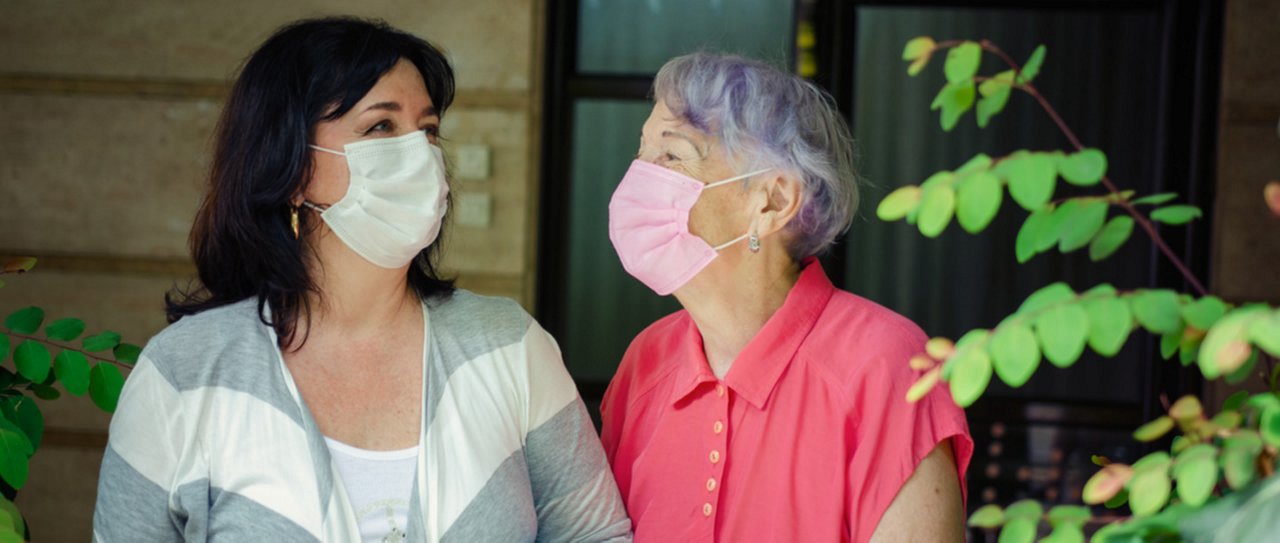10 ways to support loved ones with chronic health conditions

For years my wife struggled with pain that doctors were unable to diagnose. While they could not identify a specific medical condition, the pain got bad enough she had to stop working. Losing an income was the least of our worries as she tried to find ways to deal with the pain.
It took several years to diagnose her with two types of arthritis and fibromyalgia. While the diagnosis eased her mind that she was not crazy, the frustration lingered as she tried to find relief from the pain. She still had to continue raising kids, managing the household, being active and dealing with the guilt that she could not work.
While her chronic health conditions have a severe impact on her emotional and physical wellbeing, it also impacts the rest of the family. When she has painful episodes, she can’t be there for the kids, do things around the house or enjoy a fun activity. This has a potential to bring on depression that also can contribute to her chronic pain. It’s a vicious cycle and one I do not completely understand.
Through the years I’ve learned several lessons the hard way about how to support her. At times I was oblivious, because I did not completely understand what she was going through. At other times I was an outright jerk, because I only looked at how her situation impacted me.
I hope these tips can help you better care for loved ones with chronic health conditions.
If you want the cliff note version, here it is. Don’t be a jerk! Now here are my top ten tips.
How not to be a jerk to loved ones with chronic health conditions
1. Educate yourself
Learn as much as you can about your loved one’s condition. Ask them for literature or websites to read, search on your own or ask a professional for reading materials. Knowing more about their condition will help you relate. Do not use it to offer advice or fix them.
2. Do not downplay their situation
The last thing they want to hear is “you don’t look sick,” “If you exercised, you’d feel better,” or “I know how you feel.” Downplaying the situation only makes it worse and will build up an emotional wall between you.
3. Ask how you can help
The simplest tasks can be overwhelming for them when they are in pain. They may not think or want to ask for help. Be specific and ask how you can help them around the house, going to the doctor’s office, picking up groceries, making dinner or doing laundry.
4. Have an open mind
You do not know how they feel, so keep an open mind and do not doubt them, question them or ignore them. Believe what they say and tell them so.
5. Shut up
Don’t talk too much. Take time to just be with them, sit with them and listen to them. At times it may not feel like they want to talk, but if you give them the space, they may open up. You just have to slow down and shut up.
6. Respect their time alone
Don’t be offended if they want to be alone or if they turn down time together. They need alone time to reenergize and heal. If they have kids, take the kids out for an activity to give your loved one the quiet time they need.
7. Be an advocate
Go to their doctor appointments to listen, take notes and make sure their voice is being heard (questions, frustrations, insights). After the appointment, share your notes and talk to them only as much as they are willing.
8. Don’t act like an expert
Whatever you do, don’t be the person who emails or calls to share the latest miracle cure you heard from your mother’s sister’s brother. Don’t insult their intelligence or the effort they are putting in with their doctors already. Chances are they’ve spent hundreds of hours researching their condition. Respect that your loved one and their doctors understand the situation best.
9. Find fun activities
Find something you can enjoy with them that will not deplete their energy. If they can’t do something physically active one day, find hobbies you can do together like a puzzle, watching movies, playing games or trying a new craft. These activities can help keep their mind off the pain, and they may also open up to you while enjoying time together.
10. Take care of yourself
Make sure you are taking care of your own health, both physically and mentally. This is especially important if you are a spouse or live in the same home. Do not feel guilty to go out for a run, bike ride or to the gym. Your health is important, and without it you are not good for them or yourself.
If you have Blue Cross NC health insurance, you may qualify for a Case Manager who can help manage your health conditions.
Case Management Services offers a variety of interventions that can help you manage your condition and improve your quality of life. When you participate in Case Management Services, you’re connected with a team of dedicated health care professionals – nurses, social workers, dietitians and others – who will give you personal, one-on-one assistance. They work alongside your doctors with the goal to help remove any barriers that may get in the way of you better managing your health.
Browse related articles

Blue Cross and Blue Shield of North Carolina does not discriminate on the basis of race, color, national origin, sex, age or disability in its health programs and activities. Learn more about our non-discrimination policy and no-cost services available to you.
Information in other languages: Español 中文 Tiếng Việt 한국어 Français العَرَبِيَّة Hmoob ру́сский Tagalog ગુજરાતી ភាសាខ្មែរ Deutsch हिन्दी ລາວ 日本語
© 2024 Blue Cross and Blue Shield of North Carolina. ®, SM Marks of the Blue Cross and Blue Shield Association, an association of independent Blue Cross and Blue Shield plans. All other marks and names are property of their respective owners. Blue Cross and Blue Shield of North Carolina is an independent licensee of the Blue Cross and Blue Shield Association.




